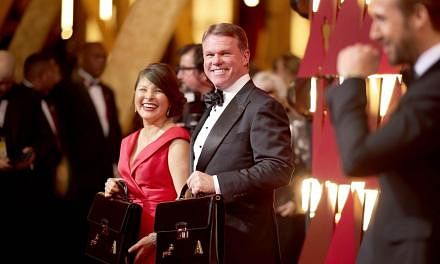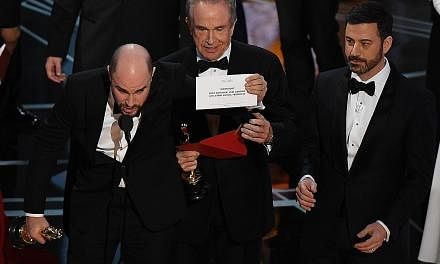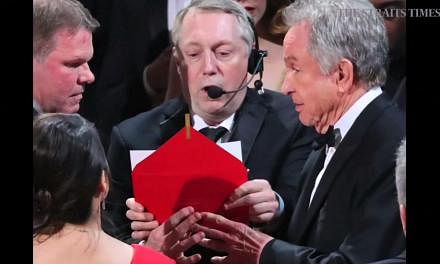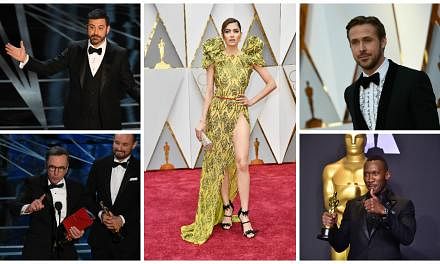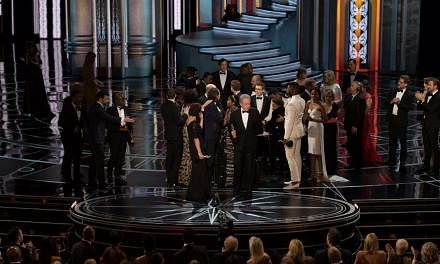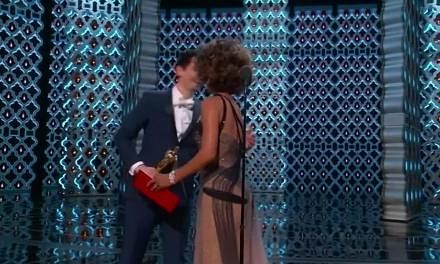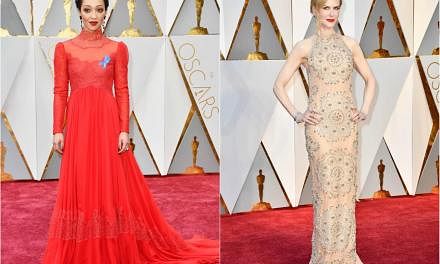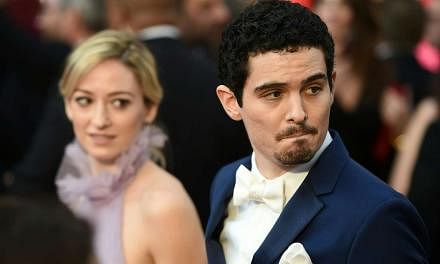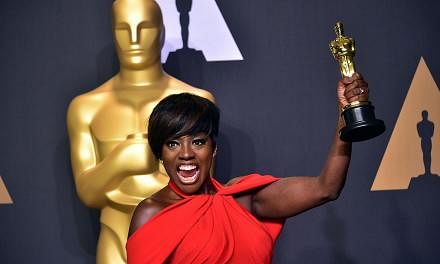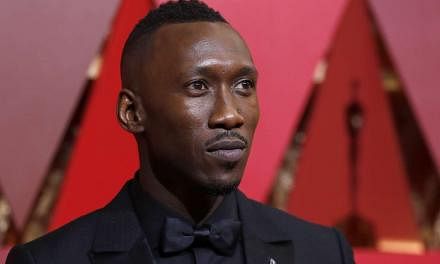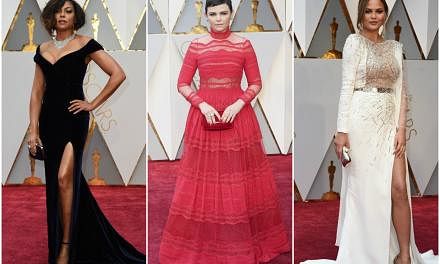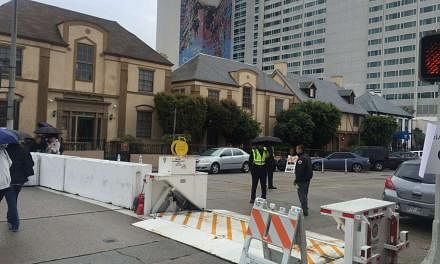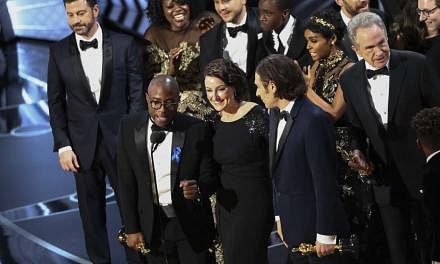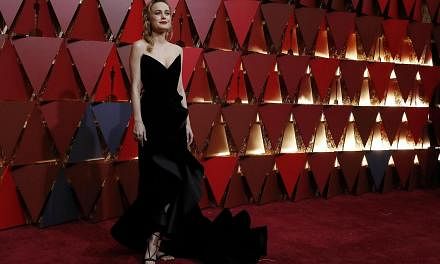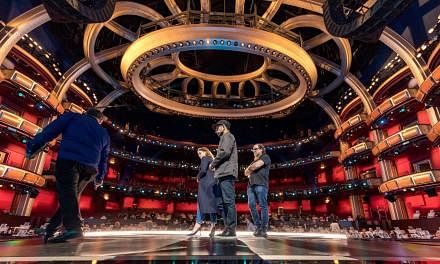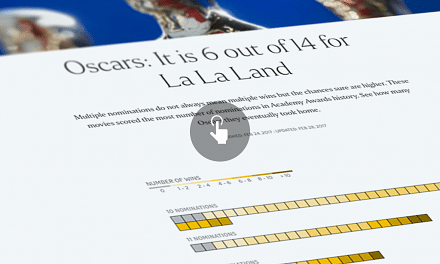89th Academy Awards
Best Picture bungle adds colour

LOS ANGELES • In an epic flub that drew gasps of horror - and joy - at the Dolby Theatre here, actress Faye Dunaway mistakenly named La La Land the Best Picture at the 89th Academy Awards on Sunday, but in reality, Moonlight won the top prize.
The producers of La La Land were still thanking their families and fellow artists when one of them said that Moonlight had, in fact, won and held up the envelope to the camera to prove it was true.
As everyone wondered if it was a joke, the La La Land people quickly exited the stage and producers and stars of Moonlight, just as stunned as everyone else, walked on.
Dunaway and actor-director Warren Beatty had presented the Best Picture award. When Beatty opened the envelope, he took an extended pause before showing the card to Dunaway, who then announced La La Land as the winner.
"I want to tell you what happened," Beatty said in the chaos after Moonlight was announced as the winner. "I opened the envelope and it said 'Emma Stone, La La Land'. That's why I took such a long look at Faye... I wasn't trying to be funny. This is Moonlight, the best picture."
"It is true. It's not fake," said Moonlight director Barry Jenkins. "My love to La La Land, my love to everybody."
Moonlight, the story of a young, gay, black man, also won for Best Adapted Screenplay and Best Supporting Actor for Mahershala Ali.
La La Land, which had 14 nominations, won six Oscars. They included statuettes for Damien Chazelle - who, at age 32, is the youngest to win the directing award - and for Stone's acting, during a jaunty ceremony that swung between self-celebration and political acrimony - before its wild ending.
Host Jimmy Kimmel said: "Well, I don't know what happened. I blame myself for this. Let's remember it's just an awards show, we hate to see people disappointed, but we got to see some extra speeches."
The Best Picture win by Moonlight, distributed by A24, was a crowning achievement for African-American film-makers after two years of controversy over institutional racism in Hollywood.
Apart from Ali, Oscar voters also honoured black actress Viola Davis (Fences) for Best Supporting Actress. The two were among a record six black actors with nominations after two years when people of colour were snubbed.
Jenkins and Tarell Alvin McCraney won for adapted screenplay for Moonlight, the first time multiple African-American writers have received an Oscar in the same year.
McCraney said: "This goes out to all those black and brown boys and girls and all those non-gender-conforming."
The United States presidential election of Mr Donald Trump in November also gave this year's awards ceremony special significance, since actors such as Meryl Streep have directly drawn the American President's ire for using their celebrity to make political statements.
"Thank you, President Trump," Kimmel said in his opening monologue. "Remember last year when it seemed like the Oscars were racist? That's gone, thanks to him."
That was among several jokes at Mr Trump's expense, including several entreaties by Kimmel for the leader to tweet about the proceedings. As of the end of the ceremony, he had not obliged.
Mr Trump's now-frozen travel ban on seven majority-Muslim countries put the spotlight on The Salesman, Iran's entry for Best Foreign Language Film and whose director Asghar Farhadi skipped the ceremony in protest - a decision that may have ultimately helped his film win.
Kenneth Lonergan won for Best Screenplay for his Manchester By The Sea, the story of a grieving New England handyman. Its star Casey Affleck beat Denzel Washington (Fences) for Best Actor.
Hacksaw Ridge, Mel Gibson's true story of a heroic World War II medic, won Oscars for sound mixing and film editing.
NYTIMES, REUTERS, BLOOMBERG
Join ST's Telegram channel and get the latest breaking news delivered to you.
A version of this article appeared in the print edition of The Straits Times on February 28, 2017, with the headline Best Picture bungle adds colour. Subscribe

